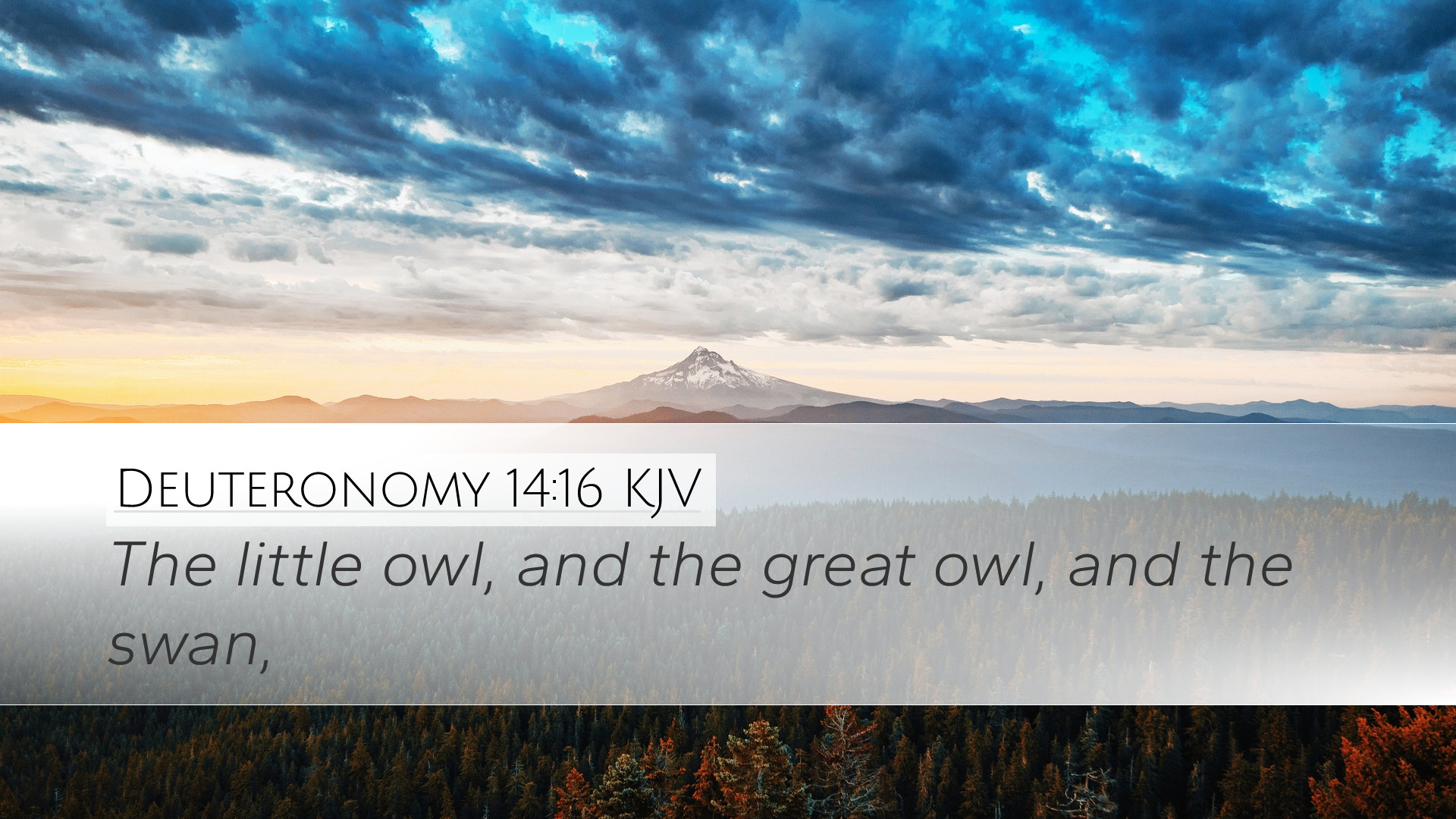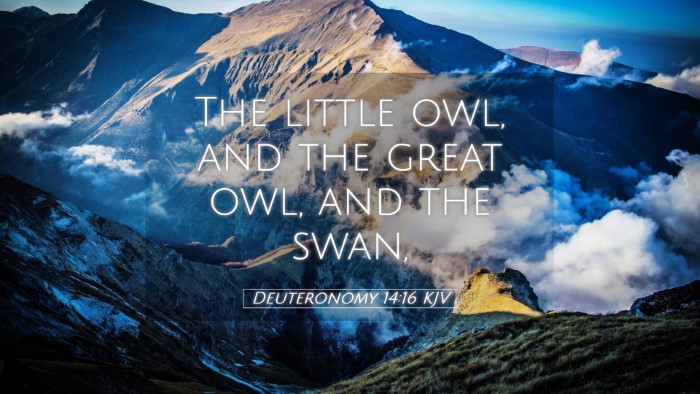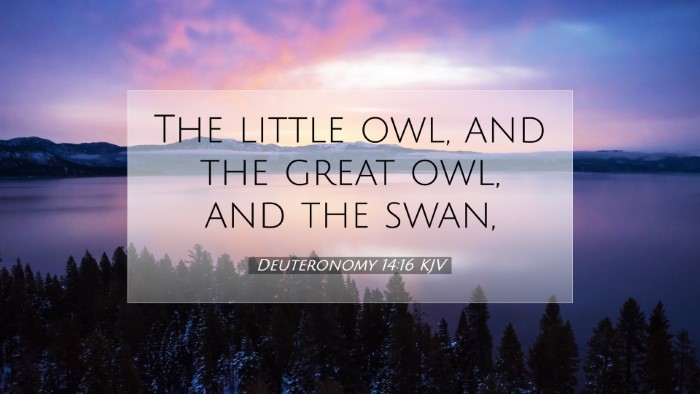Deuteronomy 14:16 Commentary
Verse Context: Deuteronomy 14:16 states, “The little owl, the great owl, the horned owl, and the bat.” This verse is part of a larger dietary law that God provided to the Israelites, detailing clean and unclean animals, which the Israelites could or could not eat. Such laws were central to the identity and holiness of the covenant community.
Overview of the Verse
This verse specifically mentions various types of birds deemed unclean by the Mosaic law. The importance of this classification cannot be overstated, as it reflects God’s intentions for the spiritual purity of His chosen people. Each creature mentioned symbolizes deeper theological implications.
The Significance of Unclean Animals
The unclean animals symbolized more than just dietary restrictions; they represented a separation from the norms of divine holiness. According to Matthew Henry, these laws were designed to elevate the Israelites’ understanding of what it meant to live in accordance with God’s will.
Insights from Commentators
- Albert Barnes elaborates on the classifications, suggesting that the specifics of unclean animals, like the various owls mentioned, serve to teach the Israelites discernment concerning purity. It reflects a broader principle of spiritual vigilance.
- Adam Clarke provides a historical lens, noting that these dietary laws distinguished the Israelites in the eyes of surrounding nations. This cultural divergence was meant to emphasize their commitment to God’s covenant.
Theological Implications
The classification of these birds under unclean animals reveals a crucial aspect of holiness. The distinction made by God calls for a deeper relationship that requires the Israelites to consider their values and practices through a divine lens. Such regulations remind the faithful of God's overarching authority and the need for obedience.
Holiness and Separation
Applying Henry’s perspective, the spiritual practice of abstaining from certain foods was a physical reminder of larger truths. The unclean animals served as metaphors for moral and spiritual corruption. In a society that often overlooked divine commandments, these laws served to highlight the need for integrity among God's people.
Spiritual Discernment
According to Barnes, God’s moral principles extend beyond dietary laws and into a holistic understanding of righteousness. The consumption of unclean animals indicated a lack of obedience and an acceptance of practices contrary to God’s commands. This also reflects the broader Christian call to discernment in what is consumed—spiritually, morally, and physically.
Practical Applications for Believers
For pastors, students, theologians, and Bible scholars, the implications of this verse extend into contemporary Christian practice. These ancient dietary laws prompt believers to consider their lifestyles, choices, and engagements with the world.
- Cultivating Holiness: Just as the distinction of clean and unclean animals called the Israelites to holiness, modern Christians are called to identify what is clean in their lives—those practices that build faith and integrity.
- Community Separation: The church today must reflect on how cultural practices align with biblical principles. Are there modern 'unclean' practices that believers are inadvertently consuming?
- Encouraging Discernment: The challenge for today’s believers is to engage in spiritual discernment, emulating the careful consideration God instructed the Israelites to apply regarding what they ate.
Conclusion
Deuteronomy 14:16 serves as a foundational text that speaks to the nature of God’s holiness and the call for His people to live distinctly in the world. By integrating the insights from Henry, Barnes, and Clarke, one can appreciate the layered meanings and implications of these dietary laws. The careful study of such texts equips believers to foster a deeper understanding of holy living in their spiritual journey.


